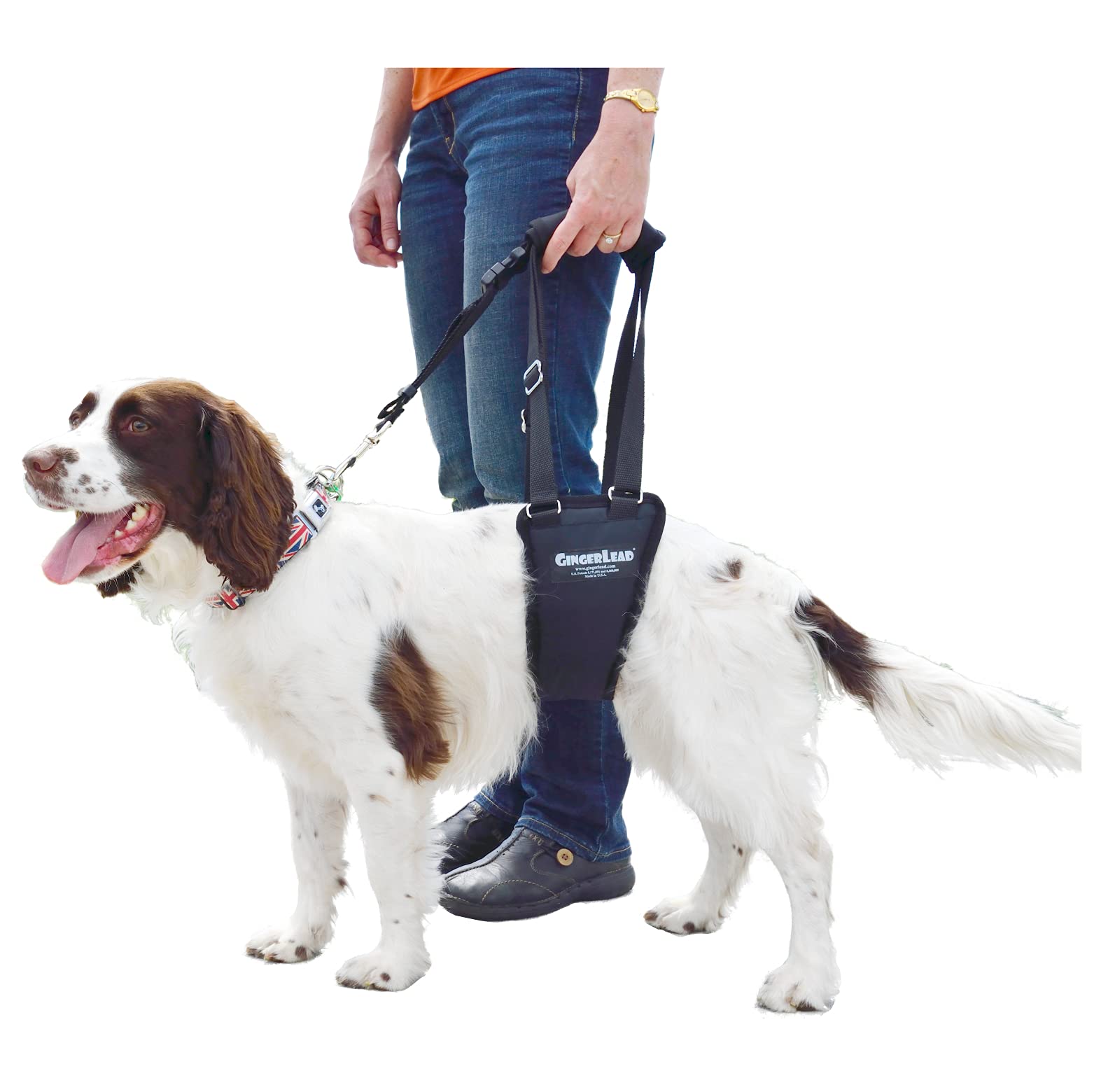Gingerlead Dog Sling Hip Support Harness, Sm Male Fits Small To Medium Size Pets 20-65 Lbs. (Male Dachshunds Use X-Small Size) O
- $70.19
-
Regular price
$100.27 -
-29%
Couldn't load pickup availability




Vendor: Gingerlead
Type: Harnesses
Sku: WBPETB009L5ACLM
Available: Available
- No EU import duties.
- Ships within 1-2 business days.
- Ships in our fully recyclable and biodegradable signature boxes.
Guarantee safe checkout

Gingerlead Dog Sling Hip Support Harness, Sm Male Fits Small To Medium Size Pets 20-65 Lbs. (Male Dachshunds Use X-Small Size) O
The Small Male Gingerlead Is Generally For Small Dogs (Male Or Female) Under 40-45 Lbs, Or Larger Breeds With A Barrel Chest And A Narrow Waist, Like Boxers Or Pit Bulls. Support Pad Is 3.5'' Wide. Straps (Including Support Pad) Adjust From 37'' - 60'' Long.Gingerlead'S Patented Design Integrates A Padded Belly Sling With A Leash & Handle To Help Dogs With Weak Hind Legs Walk. Ideal For Aging Or Disabled Dogs Needing Some Assistance With Their Balance Or Mobility, Dogs Suffering From Arthritis, Degenerative Myelopathy Or Other Debilitating Conditions, Or Dogs Recovering From Knee, Hip Or Back Injuries How To Measure - Support Pad Width - Measure From The Front Of The Hind Legs (In Front Of The Penis For Male Dogs) To The Base Of Your Dog'S Chest To Determine The Support Pad Width. Tip: A Sheet Or Bath Towel Can Be Folded To The Various Pad Widths To Determine The Best Fit For Your Dog. See Product Images For Sizing Chart. - Adjusting Dimensions - Measure Starting Where The Handle Of The Gingerlead Will Rest In Your Hand (While You Are Standing Upright), Continue Under Your Dogs Belly, Up The Other Side, Then Back To Your Hand Completing The Loop. If It Measures 37 Or Less, The Tall Size Should Be Considered. Recovery Sling For Post-Operative Surgery Ivdd (Intervertebral Disk Disease) Patellar Luxations Tplo (Tibial Plateau Leveling Osteotomy) Tta (Tibial Tuberosity Advancement) Tpo (Triple Pelvic Osteotomy) Total Hip Replacement Fho (Femoral Head Ostectomy) Help Injured Or Elderly Dogs Walk With: Degenerative Myelopathy Or Cdrm Hip Dysplasia Arthritis Back Or Spinal Injuries Fibrocartilaginous Embolism Rear Leg Amputees Rear Leg Paralysis Dogs Struggling With Stairs
